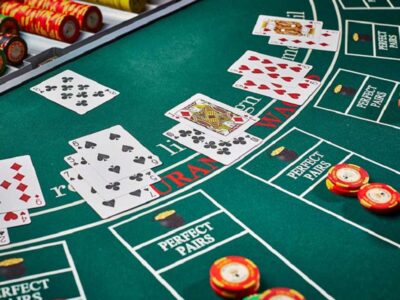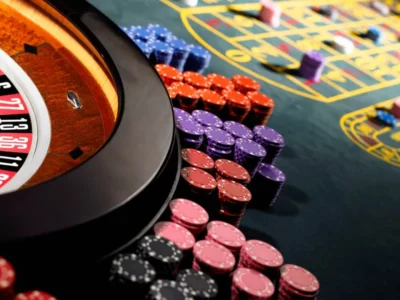Poker is primarily a game of chance or skill, which has been hotly debated. While luck plays a role in the short term, the long-term success of professional poker players demonstrates that skill and strategy are the dominant factors. Unlike games of pure chance found in online casinos or bingo casino platforms, poker requires a complex blend of mathematical prowess, psychological insight, and strategic thinking.
Poker is a game of probabilities and expected value. Skilled players use their knowledge of poker math to make informed decisions at every game stage. This includes calculating pot odds, implied odds, and the likelihood of improving their hand. For instance, a player at Bingo29 might rely solely on chance, but a poker player must constantly evaluate the mathematical merits of each action.
Hand rankings and the probability of hands occurring are just the beginning. Advanced players go further, considering concepts like combinatorics to assess the range of hands their opponents might hold. This mathematical underpinning provides a solid foundation for strategic decision-beyond simple guesswork.
Reading and manipulating opponents
- The most fascinating aspect of poker is the psychological element. Unlike games in a typical online casino, poker pits players directly against each other. Success often hinges on players’ ability to read their opponents and control their behavioural cues or “tells.”
- Skilled poker players are astute observers, picking up on subtle changes in an opponent’s behaviour, betting patterns, and timing. They use this information to guess the strength of their opponent’s hands. Moreover, they employ various tactics to manipulate their opponents’ perceptions, such as bluffing, semi-bluffing, and slow-playing solid hands.
- This psychological dimension adds layers of complexity to the game that are absent in chance-based games like those found at Bingo29 or other bingo casino sites. It transforms poker into a nuanced battle of wits; players must constantly adapt strategies based on the specific opponents they face.
Position and its strategic importance
They are order in which players act is a crucial strategic element that skilled players exploit to their advantage. Players who act last have more information to work with, allowing them to make more informed decisions. Leveraging positional advantage requires a deep strategy in the game. Players must adjust their starting hand requirements, bluffing frequency, and overall aggression based on their position at the table. This dynamic must be more present in games of pure chance, highlighting poker’s strategic depth.
Adapting to different formats and opponents
Poker comes in many variants, each with its strategic nuances. Skilled players must be adaptable, from Texas Hold’em and Omaha to Seven-Card Stud and more. Furthermore, the strategies that work in a cash game might be suboptimal in a tournament setting. The ability to adjust one’s plan based on the specific format, tournament stage, stack sizes, and opponents’ tendencies indicates skill. This adaptability extends to online poker, where players must compensate for the lack of physical tells by focusing more on betting patterns and timing. It’s essential to acknowledge that luck plays a role in poker in the short term. A novice can win a single hand or even a tournament against more skilled opponents. However, skill invariably rises to the top over a large sample size of hands.
Professional poker players understand this concept deeply. They focus on making the best possible decisions in each situation, knowing that if they consistently make +EV (positive expected value) plays, they will profit in the long run.











Comments